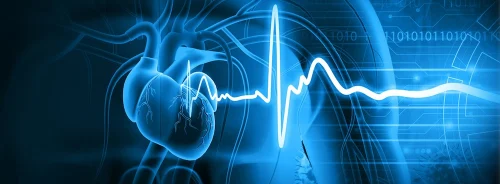HealthManagement, Volume 2 - Issue 1, Spring 2008
The Hellenic Cardiological Society (HCS) was founded in Athens on September 7, 1948, and has been closely linked to the history of cardiology in Greece. The HCS is also one of the 14 founding members of the European Society of Cardiology. The HCS is a scientific, non-profit making association. Initially it had 29 members but the number since has risen to more than 2,000. The vast majority of members are cardiologists, but there is also a small number of cardiothoracic surgeons. The number of Greek women cardiologists is steadily increasing over the last years, and it now represents 15% of the HCS members.
According to the bylaws of the HCS, the aims and targets of the
society are the promotion of the discipline of cardiology in Greece, the
participation in the prevention and treatment of cardiovascular diseases and
the achievement of the best possible scientific and professional conditions for
the members of the HCS.
The HCS is managed by the Board consisting of nine members
namely, the President, President-Elect, Past-President, Secretary, Treasurer,
and four Members. The Board Members are elected through elections
(secret-balloting process) that take place every two years, during the procedures
of the Annual Panhellenic Cardiological Congress. In these elec tions, all
members of the HCS are eligible to participate and vote. The President of the Board
is the President-Elect of the previous Board.
The HCS comprises 19 working groups. Each of these working
groups has as its subject a specialised scientific area of cardiology and is
managed by its President, President-Elect and the Nucleus Members. The members
of each working group meet regularly, organise educational and research
activities, registries, and publish guidelines.
The HCS owns a five-story building of great architectural value,
the “Heart House”, in which the administrative services and several of the
scientific and educational activities of the society are hosted.
The HCS organises a three-day Annual Panhellenic Cardiological
Congress, held in October or November each year, that focuses on high-quality
round table talks and lectures given by distinguished Greek and invited foreign
speakers, as well as the presentation of abstracts with original research. The
congress is the largest medical congress in Greece and is attended by more than
2,500 cardiologists, physicians from other specialties and nurses.
Additionally, the Annual Seminar of the Working Groups of the
HCS, held in February or March each year, provides a more focused exchange of
scientific knowledge, based on the specific subject of each working group. This
annual seminar is mainly characterised by round table talks and lectures, with
very limited presentation of abstracts of original research.
In addition to the above, the HCS has been organising
activities, actions and events, taking place throughout the year and all over
Greece, characterised by a high scientific level.
The HCS also publishes the Hellenic Journal of Cardiology, its official bimonthly scientific journal, indexed in the Index Medicus. In addition, the newsletter of the HCS, containing information on past and future activities of the society, is published every three months and is mailed to all members.
Of primary importance is the website of the HCS (www.hcs.gr). The home page of the HCS contains information on the HCS, the working groups, the full-text content of the Hellenic Journal of Cardiology, the upcoming meetings, and the electronic library, through which all the members of the society have full-text access to the most important international cardiological and other scientific journals.
Several other activities are fostered by the HCS, aiming at the improvement of education and motivation of gifted cardiologists. The society sponsors grants, awards and scholarships. Grants are given for original research projects submitted according to pre-specified rules. The awards are given during the Annual Panhellenic Cardiological Congress for original abstracts presented during the Congress. The scholarships are destined for young cardiologists, under the age of 40 years, who wish to follow specialised training for one year in prestigious centres of cardiology abroad (most often in Europe, but some times in the US).
As the years pass, the HCS becomes more and more open and democratic and includes younger cardiologists in the educational programmes and as speakers in its scientific meetings. In addition, all Greek cardiologists are encouraged to submit their original research abstracts to the Annual Panhellenic Cardiological Congress and submit their papers for publication to the Hellenic Journal of Cardiology.
Strong Ties with the ESC
The HCS is closely related to the European Society of Cardiology (ESC). One could say the ESC acts as a guide for the HCS. The HCS may adopt several of the ideas and activities of the ESC; however, it should be stressed that such ideas and actions are actively adjusted to the unique conditions of the Greek cardiologists. Cooperation between the ESC and the HCS is always welcomed and communication channels between these two organisations are always wide open.
The HCS constantly seeks new ways and means for the advancement of cardiology in Greece, therefore always seeks the development of new activities that will full fill its goals and aspirations. To achieve this, the society engages in activities aiming to reach the general public, such as brief television messages against smoking and obesity and promoting healthy eating and exercise. The HCS participates in activities for educating the general public during the World Heart Day each year and makes clear, simple statements about controlling risk factors for cardiovascular diseases.
Future Goals
Of the most important future goals of the HCS should be the commitment to promote growth of knowledge about cardiovascular diseases and improve disease prevention by providing information to cardiologists and to the general population. Another important goal should be the assumption of a strong advisory role by the society for the development of standards for training and credentialing of young cardiologists.






